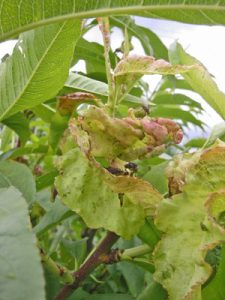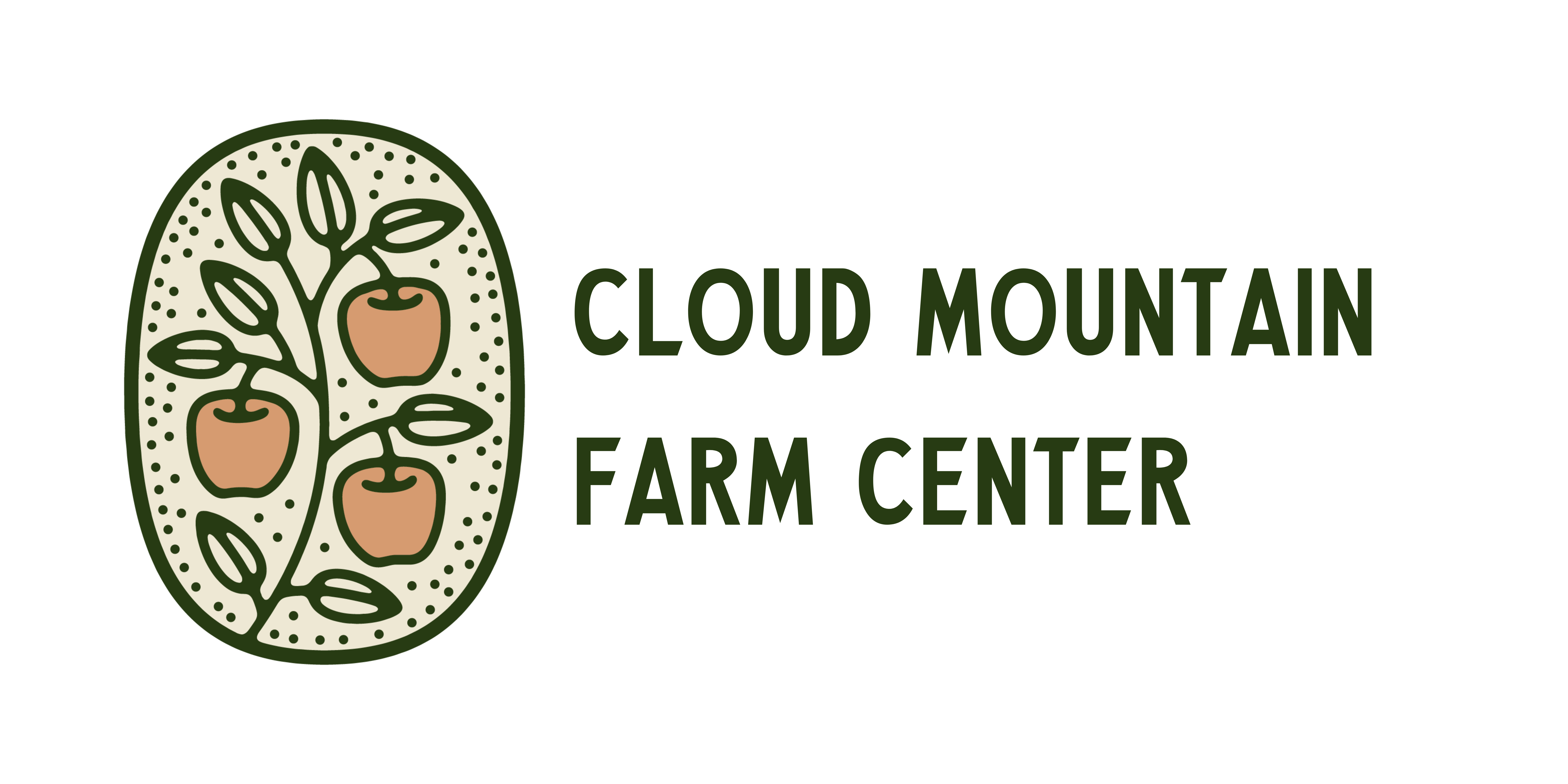Growing and Variety Trials
 This project aims to increase local market opportunities for Whatcom County organic specialty crop growers. The research focuses on season extension production technology and implementing crop trials for leafy greens. Our objective is to improve winter hardiness, select low light tolerant cultivars, and improve cultivation, harvest, and processing techniques to ensure year-round availability.
This project aims to increase local market opportunities for Whatcom County organic specialty crop growers. The research focuses on season extension production technology and implementing crop trials for leafy greens. Our objective is to improve winter hardiness, select low light tolerant cultivars, and improve cultivation, harvest, and processing techniques to ensure year-round availability. The focus for this trial is growing sweet cherries on a UFO (Upright Fruiting Offshoots) training system. This trial is takes place under a plastic hoop system. This has been effective in preventing spring rain from causing splitting and also in creating a microclimate for early ripening in our cooler climate.
The focus for this trial is growing sweet cherries on a UFO (Upright Fruiting Offshoots) training system. This trial is takes place under a plastic hoop system. This has been effective in preventing spring rain from causing splitting and also in creating a microclimate for early ripening in our cooler climate.
The UFO training system is most effective for high density plantings to increase yield in a smaller acreage and gives us the opportunity to have a large variety of cherry selection trials. This selection enables us to extend ripening throughout season. Cloud Mountain Farm Center has developed an organic program for the cherry production.
 This trial aims to provide information on both Wine and Table Grape varieties to determine which rootstocks and varieties perform the best in our region. The trail also experiments with different training systems to monitor for production effectiveness. Cloud Mountain Farm Center grows 71 uncertified varieties and 39 certified virus free varieties.
This trial aims to provide information on both Wine and Table Grape varieties to determine which rootstocks and varieties perform the best in our region. The trail also experiments with different training systems to monitor for production effectiveness. Cloud Mountain Farm Center grows 71 uncertified varieties and 39 certified virus free varieties. This program is focused on variety selection for our climate and disease resistance.
This program is focused on variety selection for our climate and disease resistance.
Current Peach Production Trials
- Organic varietal and production trials
- Variety evaluation:
- Curl resistant– Frost, Salish Summer, Betty, Avalon Pride
- Stellar Series– Blazing Star, Red Star, Rising Star
- Flamin’ Fury Series– FP-#1,PF- 7-a, PF- Early 8 Ball, PF- Eight Ball, 9-a 007, PF Lucky 13, PF- PF- 19/007, PF-24-C, PF- 5-D
- Variety evaluation: resistance to Bacterial Spot, Bacterial Canker, split pit, Cytospora Canker, Brown Rot
- Production data by variety
- Rootstock in trial- Lovell
- Additional rootstock trial, planted 2015-2016: Krymsk 1 dwarf (Peach and plum varietals)

Leaves distorted by peach leaf curl fungus
Peach Leaf Curl Peach Leaf curl is caused by the fungus Taphrina deformans. The spores of the fungus lodge in the bud scales of peach and nectarine trees in the summer, overwintering there until the tree begins to break dormancy. At that time, the new leaf tissues are infected, causing the cells to grow larger than normal, which gives the diseased leaf the characteristic swollen, distorted look. Wet conditions and temperatures from 48° to 70° favor the fungus. Sounds like our spring weather, doesn’t it?
Cloud Mountain planted its first peaches in 1980 of which Frost peach was one of our first varieties in the ground. It was the first Leaf Curl Resistant peach to be grown in Western Washington. Since then, numerous other promising Curl Resistant varieties have been added to the list, and all are very suitable for home production. Frost, Avalon Pride, Salish Summer and Betty are the selections in this category that we have in our trial. The genetics of these Curl resistant varieties seems give all of these selections a fuzzy nap to their skin. Some find that distasteful, however when you bite into any of these selections you will likely forget about the fuzz! The information we have been gathering from our trials is beginning to demonstrate to us that Peach Leaf Curl resistance is one of the keystones for successfully growing peaches in our region.
If you want to grow peaches at home and do only minimal spraying then the leaf curl resistance varieties should be what you select from. An over whelming majority of our experience is with Frost. However we have 5-6 years experience with Avalon Pride, and Betty. For Salish Summer, we have only had two small crops. Overall, fruit quality has been excellent some years and not as productive other years. Weather, leaving too much fruit on, soil, water and pruning play significant roles. When choosing to grow peaches in Western Washington you should take in all of these pieces to makes sure that you are successful.
Below is a list of our observations with these varieties.

Avalon Pride
Avalon Pride- Fruit quality has been firm, dense flesh, with a pleasing texture. Appears sensitive to one of the cankers, Bacterial or Cytospora. Tree shows little bud damage in the spring from Brown Rot. The experience at Cloud Mountain and the feedback we have received from customers is Avalon Pride’s fruit quality has been very flavorful and people are continually surprised we can grow peaches of this quality in our climate.

Salish Summer Peach
Salish Summer- Very disease free looking tree at bloom, in several years of observation Salish Summer shows the least amount of brown rot along with Betty in its buds or in the adjacent bark. It has a lighter bloom than most varieties and lighter fruit set in its first couple harvests compared to other Curl free varieties. Fruit quality over the first two years hasn’t been great, However, judging fruit quality for only a few of the earliest years is folly. Our experience evaluating fruit quality has only been for two years and in those years it has been mediocre. Please keep in mind that our experience over decades of growing peaches, you simply can’t judge from the fruit couple of years of fruiting a variety. Peaches have never expressed the best qualities in any variety in its first few years. S.S. is white peach, on a tree that spreads easily for open center training.

Frost Peach
Frost– Cloud Mountain has been growing Frost peaches for over thirty years and it has always been a very Curl resistant tree. Its flavor is consistently up there with any others in this class fruit. We have seen it bear over two hundred lbs. on the rare year, with respectable yields consistently. Our first Frost peach tree broke apart after 25 years from carrying one of those big crops. However, its down sides are two fold; I think it’s more prone to brown rot infections in the spring than other Curl resistant varieties, which makes pruning more important on an annual basis. These infections seem to be more in the bud than in the bloom as it can consistently bear heavy crops. The other issue with Frost is the fruit texture, which can be on the stringy side, making it less suitable for canning.

Betty Peach
Betty- This peach literally has come out of Betty’s compost pile in Ferndale. Fruit quality has been superb, rich dense flesh that rivals any of the 16 varieties we have in our commercial trials. This fruit thinned properly is outstanding. Although we have produced only a few crops on the tree it really looks promising. Time will tell. In really only 2 years of fruiting it has shown the capacity that it can easily overset fruits as it has for us both years of harvest. It’s brown rot resistance so far has only shown very minor damage. If you are growing on a good site where frost isn’t an issue you will likely need to thin lots of fruit off this tree or you be producing small mediocre fruits. Fruit on any variety should be thinned down to one peach every 12- inches. We have observed no canker symptoms nor experience so far on this variety.
Commercial Variety Trials Our overall project was to run variety trials in a more commercial production setting. We have planted out around 125 trees, with variety counts of 5- 25 trees per variety. We showcase these fruits at the Bellingham Farmers Market every July and early August.
These varieties, their genetics and resistance to numerous diseases will play a major role in peach growing success. Brown rot damage to buds and fruit, Bacterial Canker, what I think could be Cytospora Canker (a less aggressive canker) and Peach Borers are some of the challenges we see in peach growing. Keep in mind with any variety of peach that making one copper spray application in the spring before blooms show and one in the fall just after leaves have fallen will give you some protection from the cankers that lurk in a climate like ours.
Cloud Mountain Farm Center has been trialing 15 non-leaf curl resistant varieties with two varieties added this spring. We do control peach leaf curl on these trees using organic methods. In the near future, we will add here our observations of each variety with a focus on which varieties have potential for commercial organic production in our climate.
